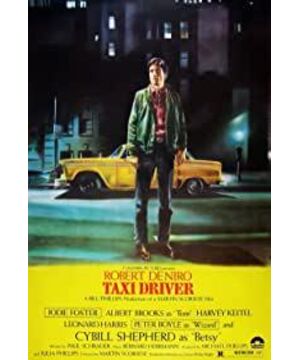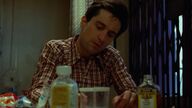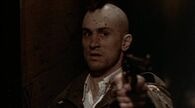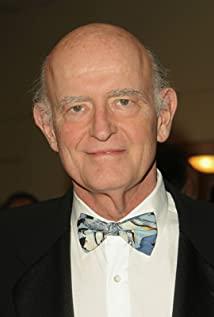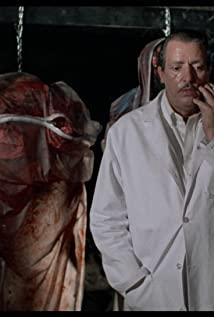The film’s language of expression in creating a repressive atmosphere is very convincing, whether it is the deliberately blurred light and shadow that Lavis saw in the taxi, or the chaotic and dirty social era characteristics outside the car window, Coupled with De Niro's delicate and subtle facial expressions, it is very convincing to create the kind of depression caused by a chaotic era. The successful performance of this sense of depression provides a solid and credible narrative foundation for the series of changes in the central state and behavior of the main character Ravis in the movie. I firmly believe that if this atmosphere is not nearly perfectly created in the first few minutes, this movie will be greatly reduced. In fact, Sikoses did not appear more confident in the grasp of the second half of the movie, and in some places it was already on the verge of far-fetched meaning.
Lavis’s life of loneliness and hopelessness in this era, and a series of efforts to change his life (breaking of love with Beth, and wanting to escape from this place but being told that there is no way to go) have been met. fail. This person, who cannot find a way out, intends to save his ideals through violence, or is a taxi driver who vents his emotions, to the opposite of society. The assassination of President Hou Yuanren and the rescue of underage prostitutes are all in an attempt to find a heroic fantasy of escape from reality, and the brilliance of Xicoses is that it makes Lavis’s fantasy again. More climax means final failure. Lavis is not a heroic character. He fled when he assassinated Palatine. Filled with frustration, Lavis finally killed the man who controlled the prostitute. In fact, it still means that he is trying to save Alice. (Child prostitute)'s earlier intention (to get her on the right track by funding her) did not succeed. But Xikoses was not very successful in handling the final outcome. Lavis killed a few people and was finally released without guilt. Alice also embarked on the right path that Lavis wanted her to follow. This conciliatory intention made the movie not cut in tragedy. In the last taxi, the relative speechlessness of Lavis and Beth’s unexpected encounter also shows that Lavis is still the same Lavis at the beginning of the movie, and he is just a passerby to Beth at this time. The relationship with a passerby is meant to illustrate the actual disillusionment of Lavis' ideals. He might never wear that red suit again and go on a date with Beth.
In the processing of the first half of the film, the technique is rich and compact. Robert De Niro wonderfully carves a series of psychological changes in the role of Lavis. But in the processing of the second half, it seems that the connection with the first half is not very natural, but the appearance of Judy Foster is very impressive. The scene of her conversation with Lavis is in this gloomy and depressing movie. A brighter and warmer scene, Judy Foster and Robert De Niro's rivalry scene also strengthened the characterization of Lavis very well. This credit should be attributed to Judy Foster to a large extent. The disillusionment of heroism is an addition to the theme of this movie by Xikosese, which shows Xikosese's realism thinking, and it seems to have shown a good skill in the clichés.
View more about Taxi Driver reviews


